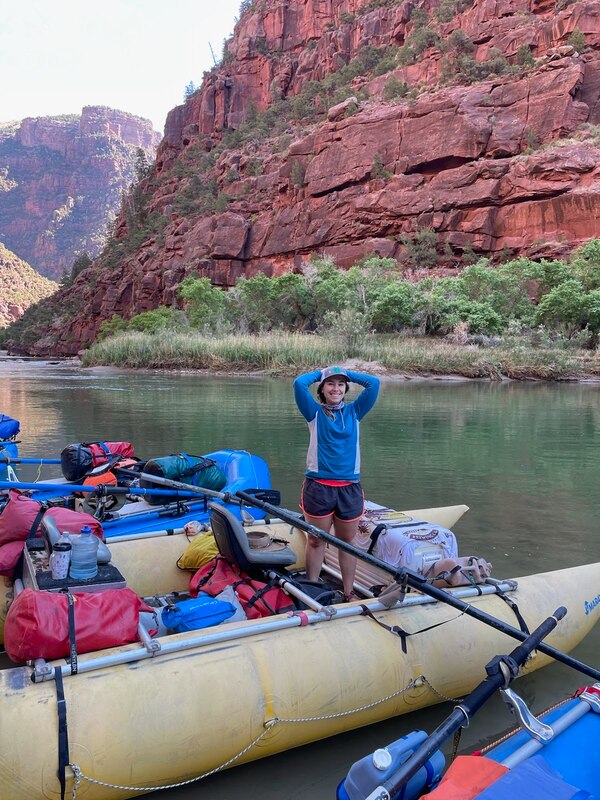For me, ecohydrology is integrating our mechanistic model of the hydrologic cycle with our newer concepts of ecosystem functions and services. It scales from quantifying plant water use to regional and global impacts of human behavior on water resources.
What are your undergraduate and graduate degrees in?
I have a BS in Biology and a BA in Geology, both from Western Washington University and a graduate certificate in Geographic Information Systems from Portland State University.
How did you arrive at working in/thinking about ecohydrology?
I grew up going on multi-day whitewater rafting trips. My parents taught me how read the river to safely maneuver the raft through tricky sections. My mom’s philosophy is “work with the river instead of fighting it,” and that’s how I learned about the power of water. It wasn’t until I was working on my GIS certificate, after my career has meandered through marine mammalogy and environmental education, that my interest in rivers and hydrology resurfaced. I got a job as a field technician surveying streams for the Columbia Habitat Monitoring Program (CHaMP). That job made me realize I wanted to work in aquatic systems instead of marine ones. After two seasons, I went to work for the Bureau of Land Management in the Aquatic and Riparian Effectiveness Monitoring Program (AREMP), where I got to travel throughout the Pacific Northwest surveying streams. It got me to think a lot more about watersheds and how land management impacts stream health. After four seasons of pebble counts and measuring large wood, I decided it was time to pursue a master’s in water resources and answer the questions I was beginning to develop as a technician.
What do you see as an important emerging area of ecohydrology?
I’m seeing a greater push to incorporate a lot of ecohydrology research into adaptive management plans. It’s really exciting to see land and water managers apply academic work to real-world problems.
Do you have a favorite ecohydrology paper? Describe/explain.
Dr. Margarita Saft has a series of papers from 2015 and 2016 that look at the impacts of multi-year drought on the rainfall-runoff relationship. I had drawn out a very similar schematic to the one shown in the papers just the day before I found them. I was beyond excited to find a similar approach to the one I was forming in my head. I also love the papers for their approachable analysis. The team was able to answer a fairly meaty question using some elegantly simple methods. It’s a good reminder that complicated is not always better.
What do you do for fun (apart from ecohydrology)?
Like most people in this field, I try to get outside as much as possible. I love most water-based activities, whether it’s liquid or frozen, so skiing, rafting, kayaking, diving, etc. (Are there any water activities in the vapor phase?) I listen to too many podcasts. I enjoy being a perpetual beginner at watercolor painting, playing ukulele, and speaking Spanish.

 RSS Feed
RSS Feed